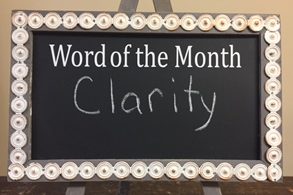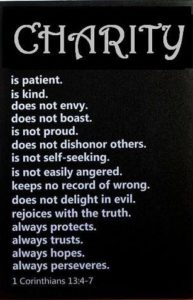
We most often think of clarity in relation to sensory perception. How clearly can we see or hear? It is a measure of how accurately we are perceiving our world. Clarity is also critical to understanding and discerning truth.
Sensory Clarity and Impediments
Definitions of clarity and clear are often expressed in opposite terms – as freedom from or an absence of things that might hinder or impede clarity and therefore interfere with our ability to perceive and understand.
Some things that affect clarity involve conditions outside of ourselves, some involve inherent abilities which may be greater or lesser for different individuals or vary within individuals at different times or circumstances, and some require some effort on our part.
Hearing clearly can be difficult with external factors such as low volume, a weak signal or interference with whatever is sending a message. Background noise or multiple sounds and voices add confusion. With age or other conditions, the mechanics of the ear or connections with the brain reduce the ability to hear clearly. Hearing clearly also requires an ability to focus – to filter out what is unnecessary and tune in to what is significant. This ability can be affected by physical factors or conditions, but largely it requires personal effort and attention to focus, filter and concentrate.
When it comes to sight, it is easy to see how pollutants, clouds or fog effect clarity of vision. Light cannot be overemphasized as an influence of clarity. Some impurities are less noticeable, especially as we become accustomed to them. Sometimes we look through dirty windows or lenses so often that we do not realize until they are cleaned how much we have been missing. We literally ” see through a glass, darkly” (1 Corinthians 13:12). Vision varies among people, but clarity can be improved by looking through corrective lenses. They sharpen our focus and can eliminate distortions. Magnification can improve clarity. It not only makes things appear larger, but makes details become more apparent. Seeing clearly also requires attention and focus through our own efforts. We miss so much because we do not really look.
Continue reading →







